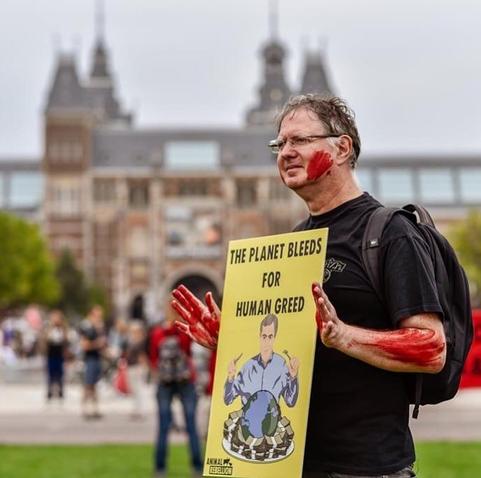What is Global Warming? Exploring The Causses, Effects, and Solutions
environmentalism pdf in hindi
Global Warming Is a Pressing Issue That has become a Major Topic of concern in Recent Years. It refers to the gradual increased in the Earth’s average temperature, Primarily Caused by the Accumulation of Greenhouse Gases in the Atmosphere. This Phenomenon has Far-Reaching Effects on Our Planet, Ecosystems, and Human Life As a Whole. In this article, We Will Delve into the Causes and Concequences of Global Warming, as well as explore potential solutions to mitigate its impact.
The Causa of Global Warming
Global Warming Is Primarily Caused by the Excessive Emission of Greenhouse Gases, Such As Carbon Dioxide (CO2), Methane (CH4), and nitrous oxide (N2O). Gases Trap Heat Within The Earth’s Atmosphere, Leading to a Rise in Temperatures. The Main Sources of these emissions are Human Activities, Including the Burning of Fossil Fuels for Energy Production, Deforestation, and Industrial Process.
fossil fuels: The Burning of Coal, Oil, and Natural Gas Releases Large Amounts of Co2 into the Atmosphere. These fuels are widely used for electricity generation, heating, transportation, and industrial process.
deforestation: Trees play a crucial role in absorbing co2 from the atmosphere during photosynthesis. However, Deforestation, Primarily Driven by Agricultural Expansion and Logging, you reduce the planet’s capacity to absorb before emissions efficiently.
Industrial Process: Various Industrial Process, Such As Cement Production and Chemical Manufacturing, Significant Release Amounts of Greenhouse Gases. Addionione
The Concequences of Global Warming
The Concequences of Global Warming Are Far-Reaching and Impact Various Aspects of Our Environment, Ecosystems, and Human Life. Here are sum of the key consequences:
Rising Temperatures: gases Gases Continue to Accumulate in The Atmosphere, The Earth’s Average Temperature Rises. This Leads to Higher Temperatures, Heatwaveves, and Prolonged periods of Extreme Weather Events.
Melting Ice Caps: The Increased Temperature Significantly Accelerates The Melting of Ice Caps and Glaciers. This contributes to rising be Levels, Leading to the Flooding of Coastal Areas and the Loss of Critical Habitats for Numberus Species.
changes in precipitation patterns: Global Warming Disrupts The Earth’s Water Cycle, Leading to Altend Patterns Patterns. Soming Regions Experience Increased Rainfall and Flooding, While Others Face prolonged drugs and desertification.
threats to biodiversity: many plant and animal species are sensitive to changes in temperature and habitat. Global Warming Disrups Ecosystems, Leading to the Extinction Or Migration of Various Species. This loss of biodiversity has Far-Reaching Ecological Concequences.
Health Impacts: The Rise in Temperatures and Changes in Weather Patterns have A Direct Impact on Human Health. Heatwaves, Increased Air Pollution, and The Spread of Disease Vectors, Such As Mosquitoes, contribute to Varius Health Issues, Including Respiratory Problems and the Spread of Infectious Diseases.
Solutions to Global Warming
Mitigating the Effects of Global Warming Requirements Collective Efforts and A Multi-Faceted Approach. Here are sum of the potential solutions that can have combat this Environmental Challenge:
transition to renewable energy: Shifting Towards Renewable Sources of Energy, Such As Solar, Wind, and Hydro Power, Can Signanantly Reduces CO2 Issions From The Burning of Fossil Fuels. Governments and Individuals Should Invest in Renewable Energy Infrastructure and finding the adoption of clean technologies.
Energy Efficient: Improving Energy Efficient in Buildings, Transportation, and Industrial Process Can Signanantly Reduces Greenhouse Gas emissions. Energy-Efficient Technologies, Such as LED Lighting and Efficient Appliances, Play A Crucial Role In This Transition.
Forest Conservation and reforestation: Protecting existing forests and engagement in reforestation efforts can enhance the planet’s capacity to absorb co2. Constoring and Restoring Natural Habitats is Essential for Maininting Biodiversity and Mitigating the Impacts of Climate Change.
Agriculture: Techniques Such as Organic Farming, Agroforestry, and Precision Agriculture Can Play a significant role in Achieving Food Security While Minimizing Environmental Impact.
International Cooperation: Global Warming Requirements International Cooperation and Coordinated Efforts Among Nations. Governments Should Work Together To Develop and Implement Polies That Promote Sustainable Development, Reduces Emissions, and Support Vulnerable Communities In Adapting To The Impacts of Climate Change.
CONCLUSION
Global Warming is Essential to understand the urgency of the issue and the need for collective action. The Causes of Global Warming, Primarily Human Activities, results in severe consequences for our planet and human life. However, By Transitioning to Renewable Energy, Improving Energy Efficient, Conserving Forets, and Sustainable Adopting Practices In Various sectors, We Can Mitigate The Impacts of Global Warming and Build A More Sustainable Future For Generations to Come.
pollution project
Gringud.com: Your guide to sustainable transportation options that combat the carbon footprint contributing to global warming. ?? #GreenTransport #ClimateFriendly
#ClimateFriendly #GreenTransport





